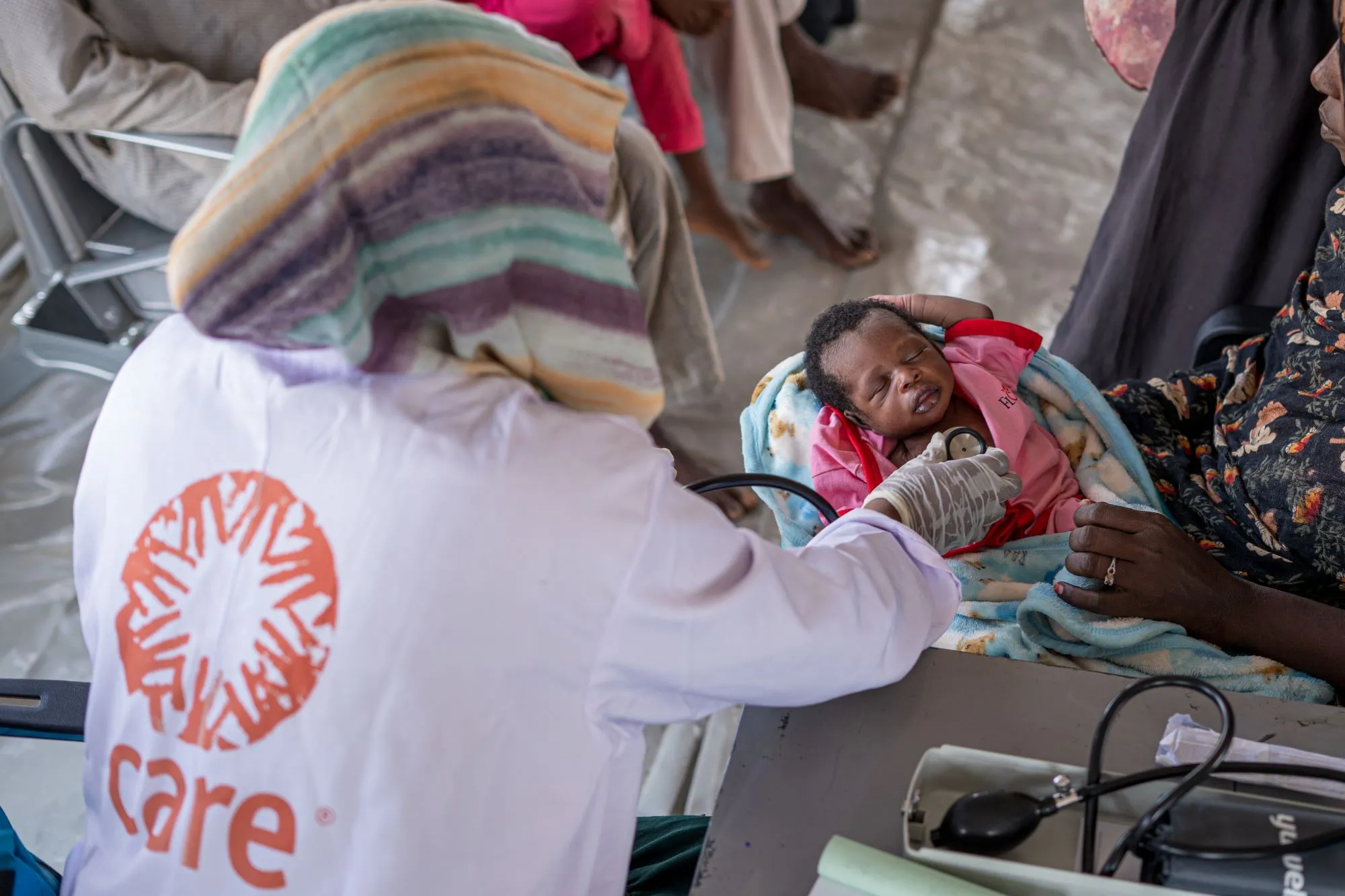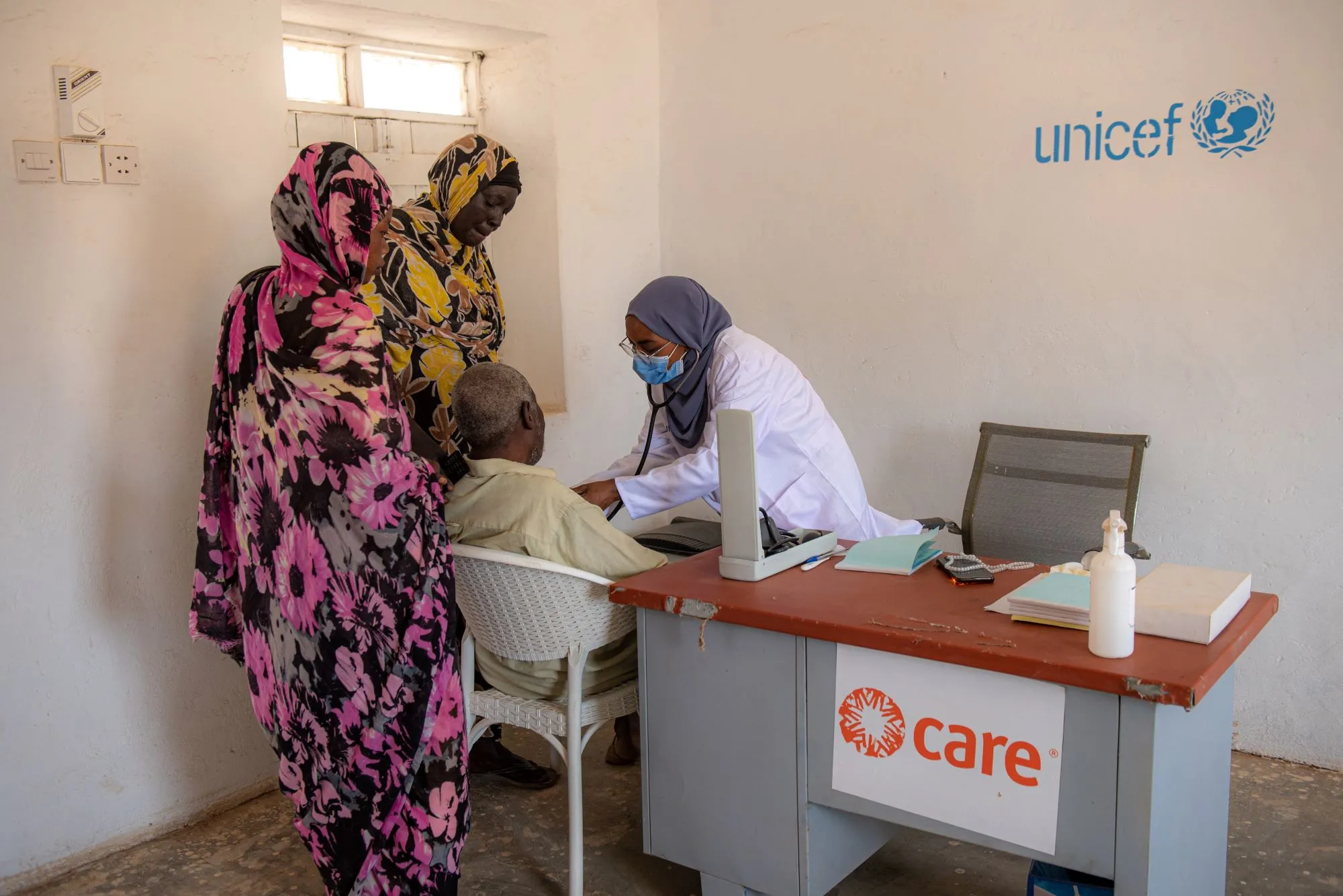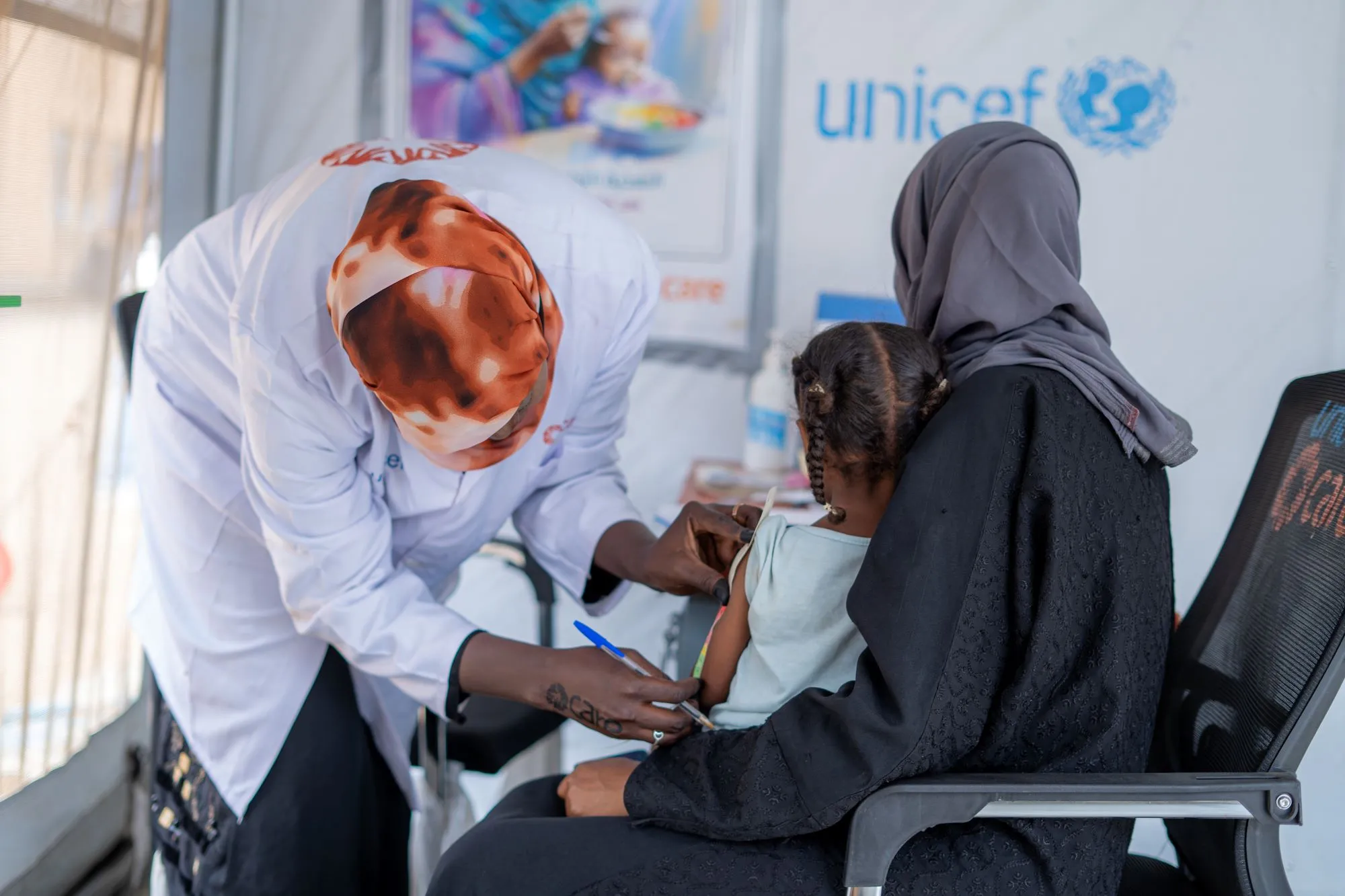Fatima is just one of millions affected by Sudan’s devastating ongoing conflict, which has uprooted lives and shattered communities.
“I lived in Khartoum with my family until conflict forced us to seek shelter in a school in Al Jazeera state. From there, we had to flee once again to Kassala state to save our lives,” she says.
The large-scale conflict, which started in Khartoum on April 15, 2023, quickly spread across several regions of the country. Now, nearly 13 million people are displaced, including internally displaced people (IDPs), asylum seekers, and refugees. Most of these displaced people are women and children.
The conflict has crippled Sudan’s infrastructure and essential services. The healthcare sector has been hit particularly hard. About 70%-80% of all health services in areas most affected by conflict are now barely operational or closed entirely. About 4.5 million children under the age of five and pregnant women with severe malnutrition face heightened threat of death due to lack of healthcare services. At least two-thirds of Sudan’s 18 states are already facing multiple disease outbreaks, including cholera, malaria, and measles.





